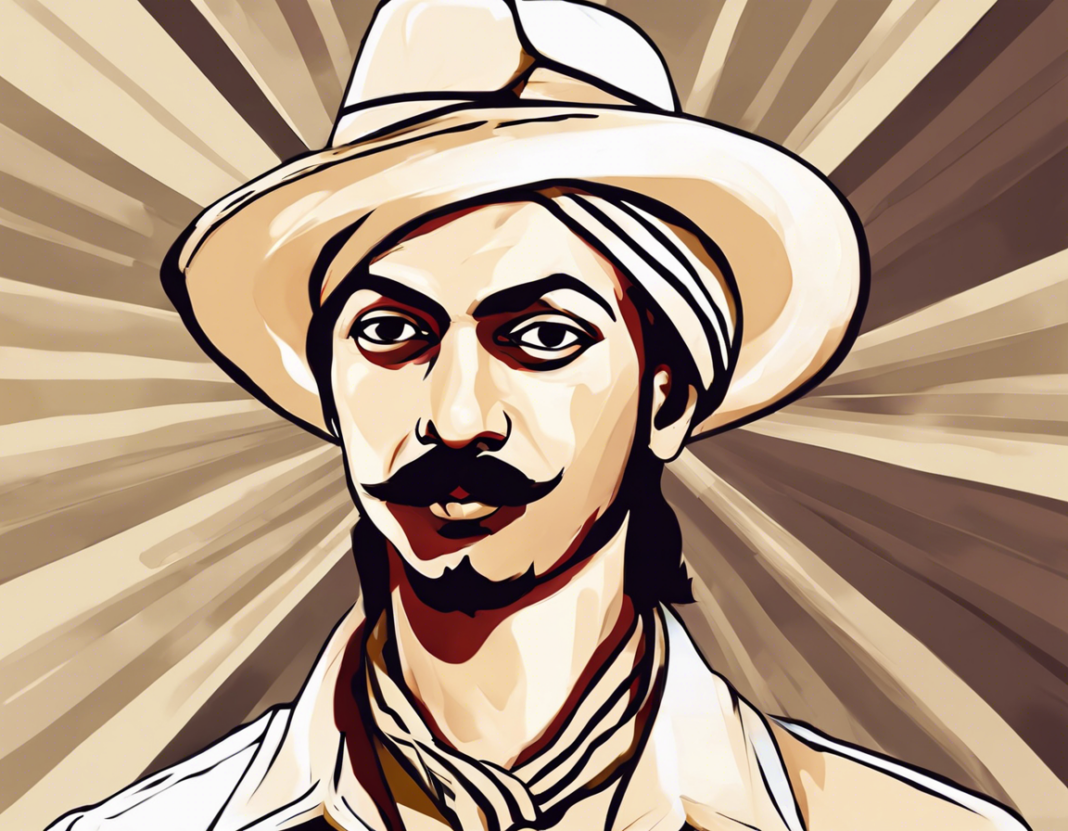Bhagat Singh, a revolutionary figure in the Indian independence movement, continues to inspire millions around the world with his unwavering commitment to freedom and justice. Every year on September 28th, his birth anniversary, known as Shaheed Bhagat Singh Jayanti, is commemorated to celebrate his life, legacy, and contributions to the fight against colonial rule. This day serves as a reminder of his courage, sacrifice, and dedication to the freedom struggle.
The Life and Struggle of Bhagat Singh
Born on September 28, 1907, in Banga, Punjab, Bhagat Singh was deeply influenced by the freedom movement from a young age. He became actively involved in the fight against British colonialism and injustice during the early 1920s. Bhagat Singh’s ideologies were shaped by revolutionary thinkers like Karl Marx, Lenin, and Mahatma Gandhi, and he believed in using non-violent as well as armed resistance to achieve independence.
Bhagat Singh’s most notable act of resistance was the assassination of British police officer John Saunders in 1928, in retaliation for the death of Lala Lajpat Rai during a protest against the Simon Commission. Despite knowing the consequences, Bhagat Singh and his associates did not flee the scene and willingly surrendered, displaying their fearlessness and commitment to their cause.
Contributions to the Independence Movement
Bhagat Singh’s incarceration and subsequent execution at the age of 23 made him a martyr and a symbol of bravery and sacrifice. His writings, including essays, letters, and articles, reflected his vision for an independent India based on socialism and equality. He believed in the empowerment of the working class and fought against social injustices and economic disparities.
One of Bhagat Singh’s most famous slogans, “Inquilab Zindabad” (Long Live the Revolution), became a rallying cry for freedom fighters across the country. His legacy inspired future generations to continue the struggle for liberty and equality.
Commemorating Bhagat Singh Jayanti
On Bhagat Singh Jayanti, individuals and organizations pay homage to the revolutionary hero through various activities such as cultural events, marches, seminars, and tributes. Schools and colleges organize speech competitions and essay contests to educate students about Bhagat Singh’s life and ideals.
Many political leaders and social activists also use this day to reaffirm their commitment to the principles Bhagat Singh stood for. Public gatherings and ceremonies are held at his memorials and museums to honor his contribution to the freedom struggle.
Legacy and Impact
Bhagat Singh’s courage and patriotism have left an indelible mark on India’s history. His legacy continues to inspire individuals to stand up against injustice and tyranny. His ideas on socialism, equality, and freedom remain relevant even today, as the country strives to uphold the principles he fought for.
His fearlessness in the face of adversity and his unwavering determination to see India free from colonial rule make him a beacon of hope for those fighting for justice and equality. Bhagat Singh’s sacrifice serves as a reminder of the price paid by those who dare to dream of a better future.
Frequently Asked Questions (FAQs)
1. What were Bhagat Singh’s main ideologies?
Bhagat Singh was influenced by socialist and revolutionary ideologies. He believed in the empowerment of the working class, fought against social injustices, and advocated for an independent India based on equality and justice.
2. What was the significance of Bhagat Singh’s contribution to the independence movement?
Bhagat Singh’s courage, sacrifice, and unwavering commitment to the freedom struggle made him a symbol of bravery and martyrdom. His ideas and actions inspired generations of Indians to fight against colonial rule and social inequalities.
3. How is Bhagat Singh Jayanti celebrated in India?
Bhagat Singh Jayanti is commemorated through various activities such as cultural events, marches, seminars, and tributes. Schools and colleges organize speech competitions and essay contests to educate students about Bhagat Singh’s life and ideals.
4. What is the relevance of Bhagat Singh’s legacy today?
Bhagat Singh’s ideas on socialism, equality, and freedom remain relevant in the contemporary world. His fearlessness in standing up against injustice serves as a source of inspiration for those fighting for justice and equality.
5. Why is Bhagat Singh considered a martyr?
Bhagat Singh willingly sacrificed his life for the goal of Indian independence. His execution by the British colonial authorities at a young age elevated him to the status of a martyr and a symbol of courage and sacrifice in the freedom struggle.
6. What impact did Bhagat Singh have on future generations?
Bhagat Singh’s legacy continues to inspire individuals to stand up against injustice and tyranny. His writings and actions have left a lasting impact on the collective consciousness of the Indian nation, motivating people to uphold the principles he fought for.
7. How did Bhagat Singh’s slogans influence the independence movement?
Bhagat Singh’s slogans, such as “Inquilab Zindabad” (Long Live the Revolution), became rallying cries for freedom fighters across India. His powerful words inspired a sense of unity and purpose among those fighting for independence from British colonial rule.
8. What role did Bhagat Singh play in the fight against colonial rule?
Bhagat Singh was actively involved in various acts of resistance against British colonialism, including the assassination of British police officer John Saunders. He believed in both non-violent and armed resistance as strategies to achieve independence for India.
9. How did Bhagat Singh’s execution impact the independence movement?
Bhagat Singh’s execution at a young age made him a martyr and a symbol of bravery and sacrifice. His death sparked widespread protests and outrage against British colonial rule, further fueling the momentum of the independence movement in India.
10. How can individuals honor Bhagat Singh’s legacy today?
People can honor Bhagat Singh’s legacy by upholding the values of freedom, justice, and equality that he stood for. This can be done through acts of courage, advocating for social change, and standing up against injustice in all its forms.
